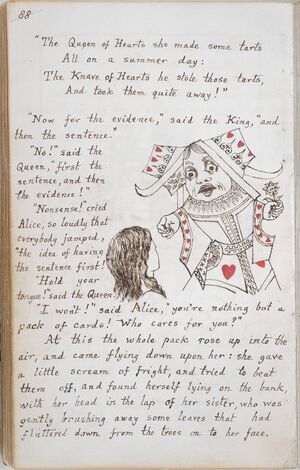Fiction (nonfiction): Difference between revisions
No edit summary |
No edit summary |
||
| Line 9: | Line 9: | ||
== In the News == | == In the News == | ||
<gallery | <gallery> | ||
</gallery> | </gallery> | ||
| Line 21: | Line 21: | ||
External links: | External links: | ||
* [https://en.wikipedia.org/wiki/Fiction Fiction] @ Wikipedia | * [https://en.wikipedia.org/wiki/Fiction Fiction] @ Wikipedia | ||
Latest revision as of 10:08, 14 January 2018
Fiction describes a story or other work derived from imagination, in addition to, or rather than, from history or fact.
Fiction can be expressed in a variety of formats, including writings, live performances, films, television programs, video games, and role-playing games, though the term originally and most commonly refers to the major narrative forms of literature (see literary fiction), including the novel, novella, short story, and play.
Fiction constitutes an act of creative invention, so that faithfulness to reality is not typically assumed; in other words, fiction is not expected to present only characters who are actual people or descriptions that are factually true.
The context of fiction is generally open to interpretation, due to fiction's freedom from any necessary embedding in reality; however, some fictional works are claimed to be, or marketed as, historically or factually accurate, complicating the traditional distinction between fiction and non-fiction.
In the News
Fiction cross-reference
Nonfiction cross-reference
External links:
- Fiction @ Wikipedia
